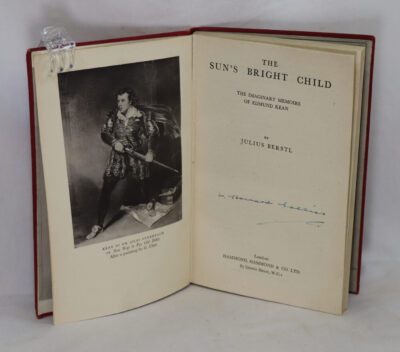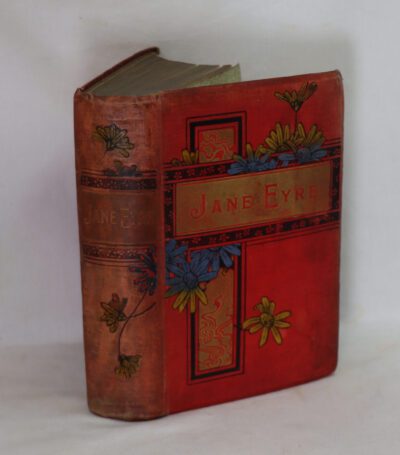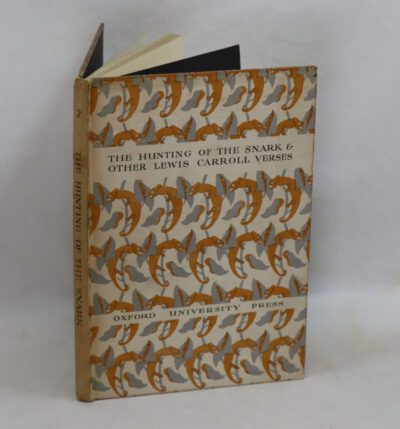Uncle's Dream and Other Stories.
By Fyodor Dostoyevsky
ISBN: 9780140445183
Printed: 1989
Publisher: Penquin Books.
| Dimensions | 13 × 20 × 2 cm |
|---|---|
| Language |
Language: English
Size (cminches): 13 x 20 x 2
Condition: Good (See explanation of ratings)
Your items
Item information
Description
Paperback. White title and portrait on the black and cream cover.
We provide an in-depth photographic presentation of this item to stimulate your feeling and touch. More traditional book descriptions are immediately available
- This used book has a £3 discount when collected from our shop
Please view the photographs to explore further details on this book.
In an age before psychology was a modern scientific field, Fyodor Dostoyevsky (November 11, 1821 – February 9, 1881) was a Russian writer of realist fiction and essays that explored the depths of the human psyche. Known for acclaimed novels Crime and Punishment, The Idiot and The Brothers Karamazov, Dostoyevsky’s work discusses the human mind in a world full of political and social upheaval in 19th century Russia, becoming the forerunner of existentialism
Review: This is the perfect way to get into the work of Dostoevsky by publishing Uncle’s Dream, a short (150 page) novel which he wrote in 1859, seven years before he wrote Crime and Punishment. All the qualities of the great author are there – insights into Russian lives with all the insights into hidden motives and the psychological manoeuverings which underpin so much human behaviour. And also, in the case of this book at least, a great sense of humour, which at times lead Dostoevsky to set up almost farcical scenes as family members vie for an inheritance. In Uncle’s Dream, an ambitious mother (Maria Alexandrovna Moskalyova – and I won’t write that again) seeks to marry off her twenty-three year old daughter Zina to the senile Prince K, a distant relative who is passing through the town in which the family live. After all, a 23 year old daughter, however beautiful and talented, is starting to become a bit of a liability particularly when she had a proud nature prone to setting herself above the common society. The prince is decidedly doddery, a frail old man, prone to forgetfulness and unlikely to last for more than a couple of years. The mother is going to have a difficult job persuading her daughter to commit to this travesty of a marriage even if the ultimate goal is a title and a fortune, but she makes a valiant attempt and eventually the daughter agrees to go along with this ridiculous scheme. When the mother is able to present to the Prince the goal of marriage to her daughter, the old man is flattered and beguiled by the thought of acquiring such a rare beauty for his very own. But due to senility, he keeps forgetting what is on offer and is easily beguiled by other grasping relatives with schemes of their own. As I read this, I was reminded of how vividly Dostoevsky writes. The story unfolds as though in a theatre, with each scene arriving with a swoosh of the curtains and a new set as the character re-emerge from the wings. The novella length suits the story very well for it enables Dostoevsky to present snapshots and cameos without the need for a lengthy character development. The characters are in any case slightly familiar types – the aging relative only respected because of his wealth, the grasping mother, rival aunts and cousins determined to undermine their relation’s schemes , the imperious daughter, the slighted younger suitor who watches from afar. These are all people we have met before, but Dostoevsky assembles his cast so skilfully that his readers are drawn into the plot and gaze on as the disreputable thoughts of men and women are revealed.
Fyodor Mikhailovich Dostoyevsky (11 November 1821 – 9 February 1881), sometimes translated as Dostoevsky, was a Russian novelist, short story writer, essayist, journalist and philosopher. Dostoyevsky’s literary works explore human psychology in the troubled political, social, and spiritual atmosphere of 19th-century Russia. Many of his works are marked by a preoccupation with Christianity, explored through the prism of the individual confronted with life’s hardships and beauty. He began writing in his 20s, and his first novel, Poor Folk, was published in 1846 when he was 25. His major works include Crime and Punishment (1866), The Idiot (1869), Demons (1872) and The Brothers Karamazov (1880). His output consists of 11 novels, three novellas, 17 short novels and numerous other works. Many literary critics rate him as one of the greatest psychologists in world literature. His 1864 novella Notes from Underground is considered to be one of the first works of existentialist literature. Born in Moscow in 1821, Dostoyevsky was introduced to literature at an early age through fairy tales and legends, and through books by Russian and foreign authors. His mother died in 1837, when he was 15, and around the same time he left school to enter the Nikolayev Military Engineering Institute. After graduating, he worked as an engineer and briefly enjoyed a lavish lifestyle, translating books to earn extra money. In the mid-1840s he wrote his first novel, Poor Folk, which gained him entry into St. Petersburg’s literary circles. In the following years, Dostoyevsky worked as a journalist, publishing and editing several magazines of his own and later A Writer’s Diary, a collection of his writings. He began to travel around western Europe and developed a gambling addiction, which led to financial hardship. For a time, he had to beg for money, but he eventually became one of the most widely read and highly regarded Russian writers. His books have been translated into more than 170 languages. Dostoyevsky influenced a multitude of writers and philosophers, from Anton Chekhov and Ernest Hemingway to Friedrich Nietzsche and Jean-Paul Sartre. Bio from Wikipedia, the free encyclopedia.
Want to know more about this item?

Related products
Share this Page with a friend










